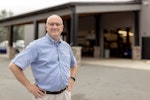It really shouldn’t come as a surprise that our industry continues to suffer under a penumbra of dishonesty and distrust. While some may argue that public sentiment is shifting to a more positive perception, a cursory Google search of the question “Are Auto Repair Shops Trustworthy?” reveals overwhelming contradictory results. Articles entitled “How to Choose an Auto Mechanic You Can Trust” or similar titles abound. Social media personalities frequently tout what’s wrong with the auto repair business. Identifying problems in the industry is easy. In the words of some friends who are combat veterans, the sheer volume of what is wrong represents “a target-rich environment.”
How Did We Get Here?
What is the genesis of this reputation that yokes us to public skepticism and cynicism? What attitudes and business practices do many shops employ in their daily operations that reinforce this negative stereotype that runs counter to the interest of those they profess to serve? I am not referring to deliberate dishonesty (e.g., recommending a service with the intent of making money absent legitimate need). Although we know that this type of activity exists, it is the exception to the rule. Yet this perception of selling that which is not believed to be needed is common in the public sphere. What I am referring to is both common and harmful. It’s called self-interest in polite circles, but I’ll just call it what it is—greed, in the guise of accepted business practice.
The answers to the above questions require a shop owner to identify their core philosophy regarding the very nature of the business and their motivation to become an owner. How a business owner views the role his business plays in the community and the responsibility they bear to those served (including employees). In my experience, owners can generally be divided into two distinctly different groups: service-driven customer-centric owners (SDCC) and money-motivated sales-centric owners (MMSC). Make no mistake though, owners who are the latter are the problem.
A Look at Both Approaches to Business
Both SDCC owners and MMSC owners have three things in common: the need to be profitable, the need to provide service (although they frequently define and measure service differently), and the need for growth. What differs is the hierarchy of importance each assigns to these needed components and how they measure success.
The goals for a customer service-driven business can be best illustrated by envisioning a Venn diagram comprised of sales, community service, and corporate culture with customer advocacy as its core. The SDCC shop owner acknowledges that they have a moral obligation to be a trusted, unbiased source of sound automotive information irrespective of the profit potential. They acknowledge and accept the mantle of moral responsibility that comes with their position. They realize that their role is akin to that of a fiduciary whose job is to “manage the person's money and property for their customers' benefit, not their own.” They believe that by being of service to meet their customers' needs, sales will follow. They and their employees are first and foremost advocates and educators for their clients, not commissioned salespeople hoping to achieve often arbitrary sales goals.
Let’s speak of the MMSD owner. Imagine a dartboard with its nested concentric circles. The ‘bullseye’ for a money-motivated sales-centric owner will be sales. In the next adjacent ring is service. Sales first, service second. The focus is foremost on making the sale and any other concentric ring is subordinate to sales and that, sadly, includes the customer. Any benefit to the community or to employees must be thought of strictly in terms of return on investment. The sales-centric owner disavows any responsibility or moral obligation to their customers aside from remaining within acceptable legal business practices. Their myopia allows them to view their business solely as a profit-producing machine focused on car count and average repair order. They consider employees nothing more than components in that machine. In the words of one well-known industry coach. “You’re building a business, not a family.” Technician names and billed hours will be posted for all to see with the hopes of 'spurring competition' (code words for finding more things to sell). The sales-centric owner employs salespeople as service advisors. These salespeople need not be knowledgeable about automobiles; what they need to know is how to sell.
This focus on sales seemingly to the exclusion of all else is at the heart of our lousy reputation as an industry.




